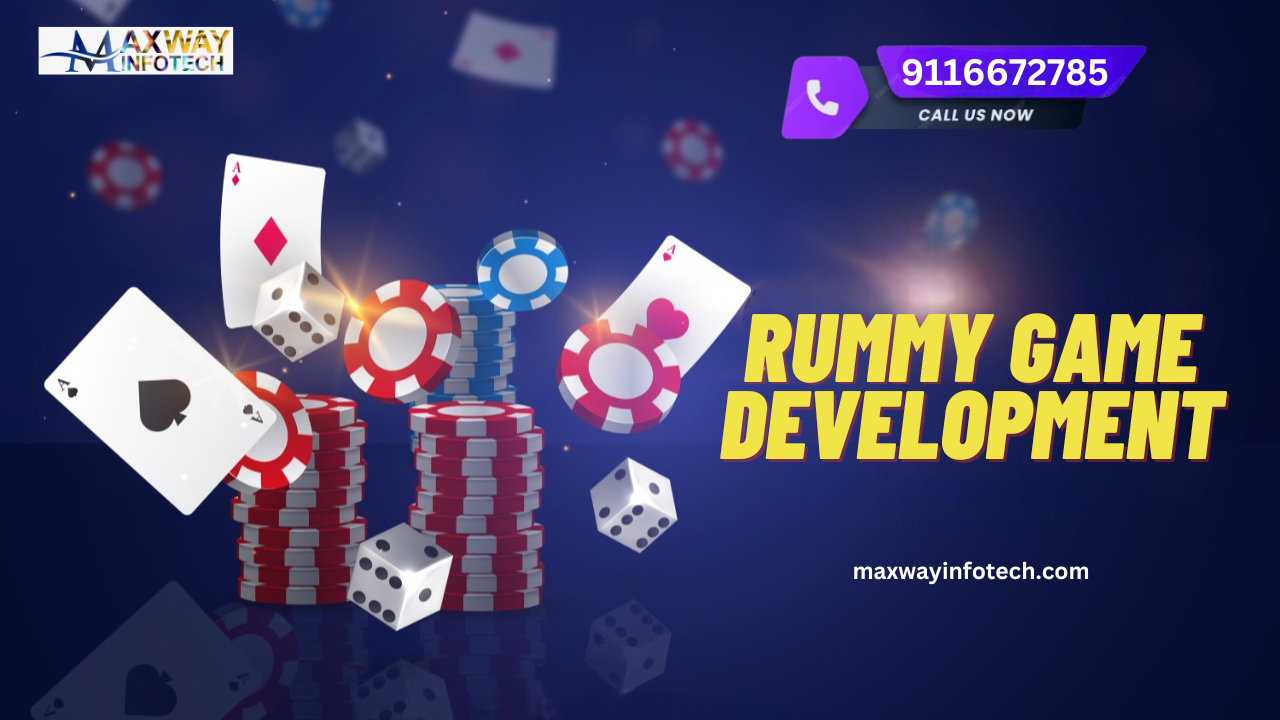top rummy game development
Top Rummy Game Development

Unlocking the Future of Rummy Game Development: Trends, Challenges, and Opportunities
The world of online gaming has experienced a massive transformation in recent years, with games like rummy gaining immense popularity. Rummy, a traditional card game that has been enjoyed by millions for generations, has evolved into a thriving online phenomenon. This evolution has opened up new avenues for game developers to create innovative, immersive, and engaging rummy games for players worldwide.
In this blog, we’ll explore the key aspects of rummy game development, including its market potential, development challenges, and future trends that developers should keep in mind while building rummy games.
The Growing Popularity of Rummy
Rummy has a rich history and has been a favorite pastime for many. With the rise of smartphones and internet connectivity, the game has transitioned from being played in physical settings to an online platform. This shift has made rummy more accessible and convenient for players, allowing them to enjoy the game anytime, anywhere. In countries like India, rummy is considered a skill-based game, which makes it an exciting choice for online gaming platforms.
The online rummy market has witnessed exponential growth, with millions of players joining digital platforms every day. For developers, this represents a lucrative opportunity to tap into an ever-expanding audience.
Key Elements of Rummy Game Development
Developing a successful rummy game requires a careful blend of technology, design, and user experience. Here are some essential elements to consider when developing a rummy game:
- Game Mechanics: The first step in game development is understanding the core mechanics of the game. Rummy is typically played with 52 cards, and players aim to form valid sets and sequences. Developers need to ensure that the game’s rules, gameplay, and card dealing mechanics align with traditional rummy rules but also introduce unique elements to make the digital version more engaging.
- Platform Compatibility: To reach a broader audience, it’s essential for the rummy game to be compatible across various platforms. Whether it’s mobile (iOS and Android), web-based, or even desktop applications, developers need to ensure the game runs smoothly on different devices, offering a seamless experience for players.
- User Interface and Design: A user-friendly interface (UI) and attractive game design can significantly enhance the player’s experience. The game should be visually appealing, easy to navigate, and responsive. This involves designing intuitive menus, interactive card dealing animations, and a visually engaging game environment that keeps players hooked.
- Multiplayer Features: Rummy is traditionally a multiplayer game, so integrating multiplayer functionality is a must for online versions. Real-time multiplayer features such as live chats, matchmaking, and tournaments are essential to create a competitive and social gaming atmosphere. Players should be able to interact with others, whether they’re beginners or experienced players.
- Security and Fair Play: In any online card game, maintaining fairness and security is crucial. Developers should implement strong encryption protocols to protect users’ personal data and ensure that the game remains free from cheating. Random Number Generators (RNG) are often used in online rummy games to guarantee fairness in card distribution and gameplay.
- Payment Integration: As rummy can also involve real money transactions, integrating secure and easy payment gateways is vital. This allows players to make deposits, withdraw winnings, and buy in-game purchases without any issues. Developers must ensure that the payment system is secure and compliant with all relevant regulations.
Challenges in Rummy Game Development
While the potential for rummy game development is vast, developers also face several challenges:
- Legal and Regulatory Issues: Rummy is considered a skill-based game in some regions and a gambling game in others. The legal landscape around online rummy gaming can vary significantly across countries. Developers must stay updated on the local laws and obtain the necessary licenses to ensure their game complies with all regulations.
- Maintaining Fairness: One of the main challenges in card games like rummy is ensuring fair play. Cheating, whether by using third-party tools or collusion among players, can damage the game’s reputation. Ensuring that the game is fair and transparent is crucial for long-term success.
- Scalability: As the player base grows, the game must be able to handle a large number of concurrent users. Developers need to create scalable backend infrastructures that can support millions of users playing in real time without any technical glitches or slowdowns.
- Monetization: Although the market for rummy games is booming, developers must find sustainable monetization strategies. This can include offering in-app purchases, premium features, subscription plans, or integrating ads. Finding the right balance between monetization and user experience is essential to avoid alienating players.
Future Trends in Rummy Game Development
The future of rummy game development looks bright, with exciting advancements on the horizon. Here are some trends to watch:
- Augmented Reality (AR) and Virtual Reality (VR): AR and VR technologies are slowly making their way into the gaming world, and rummy could be an ideal candidate for such innovations. Imagine playing rummy in a fully immersive, virtual casino setting, or using AR to enhance the physical environment while playing.
- Artificial Intelligence (AI): AI can play a pivotal role in improving the gameplay experience. AI can be used to create smarter opponents, personalize gameplay, and offer tailored game suggestions based on user behavior. AI-driven matchmaking and player behavior analysis can enhance the overall user experience.
- Blockchain Technology: With the rise of cryptocurrency, blockchain technology could potentially revolutionize the way online rummy games are played, especially in terms of transactions and player rewards. Blockchain can provide greater transparency, security, and decentralization to online gaming platforms.
- Live Dealer Integration: Many online platforms are incorporating live dealers to offer an authentic, real-time casino experience. Integrating live rummy games with real dealers could elevate the overall experience for players who prefer a more interactive, engaging environment.

